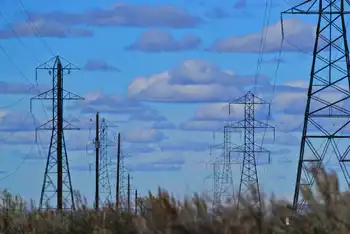Southern's plants feel economic spurt moderating
By Reuters
NFPA 70b Training - Electrical Maintenance
Our customized live online or in‑person group training can be delivered to your staff at your location.

- Live Online
- 12 hours Instructor-led
- Group Training Available
After setting a blistering pace in the first quarter, the pickup in the U.S. economy that boosted demand for electricity in Southern's backyard is moderating, the company's chief executive said in an interview recently.
The relatively subdued pace felt by Southern, which supplies power to the U.S. Southeast region and is one of the largest power producers in the nation, is more evidence supporting broader data showing U.S. economic growth softened in the second quarter.
Like many companies, Southern benefited from a robust spurt in demand in the first quarter from industrial customers, who needed additional power to crank up factories.
But the company, which supplies power to 19 industrial sectors, including plastics, autos and chemicals, saw demand grow at a slower pace in the second quarter, said Southern CEO David Ratcliffe, who is also the chairman of the board of directors the Atlanta Federal Reserve Bank.
That may not all be bad, however, he said.
"The economy in total is continuing to strengthen and that strengthening is moderating but remains positive," said Ratcliffe. "I don't think anybody expected it to continue at the pace it was at earlier in the year. The fact that it's moderating to a more, I think, realistic pace is perfectly expected and somewhat welcome."
For example, Southern felt demand from industrial customers shoot up 5 percent in the first quarter, while it normally expects only growth of 2 percent, said Southern Chief Financial Officer Tom Fanning.
In the second quarter, industrial demand was up about 3 percent, he said.
"So the slope is still positive, but it's certainly flatter."
Southern's experience mirrors what the overall data on the economy suggests.
After growing at a very strong pace in the first quarter, evidence shows that growth has tailed off in the second quarter as consumer spending softened, job creation slipped and as high energy prices take their toll.
The recent gross domestic product (GDP) report showed growth was a mere 3.0 percent in the second quarter, having slowed from the 4.5 percent pace of the first quarter.
Recently, the Labor Department said U.S. employers added just 32,000 workers to payrolls last month -- a surprisingly weak number economists say showed the economy had yet to gain much momentum after a speed bump in June. Wall Street had expected the economy to add 228,000 jobs.











